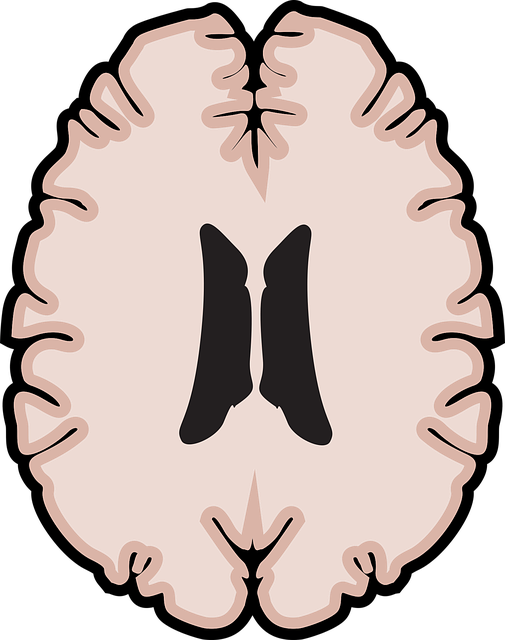Boulder German Speaking Therapy offers a unique mental health support system tailored for individuals who prefer or benefit from therapy in German, leveraging language's impact on thoughts and emotions. Through combining traditional therapy with cultural elements, this approach enhances emotional well-being promotion. Robust evaluation methods, integrating quantitative and qualitative techniques like pre-post testing and interviews, are crucial for optimizing program effectiveness and client outcomes. Key Performance Indicators (KPIs) focused on tangible mental health improvements, along with Risk Management Planning, ensure the program's safety and continuous improvement, making it a dynamic resource for diverse clients.
“Uncovering the effectiveness of mental wellness programs is paramount in fostering holistic well-being. This article explores a unique approach, Boulder German Speaking Therapy, offering specialized mental health support. We delve into the significance of program evaluation, a crucial aspect for measuring the impact and success of initiatives. By examining various methodological frameworks and data collection methods—including qualitative and quantitative techniques—we provide insights into assessing therapy effectiveness. Additionally, we highlight key performance indicators to ensure the measurement of success in mental wellness programs.”
- Understanding Boulder German Speaking Therapy: A Unique Approach to Mental Health Support
- The Importance of Program Evaluation in Mental Wellness Initiatives
- Methodological Frameworks for Assessing Therapy Effectiveness
- Data Collection Techniques: Qualitative and Quantitative Insights
- Measuring Success: Key Performance Indicators for Mental Wellness Programs
Understanding Boulder German Speaking Therapy: A Unique Approach to Mental Health Support

Boulder German Speaking Therapy offers a unique and specialized approach to mental health support, catering specifically to individuals who prefer or benefit from therapy in the German language. This therapeutic method recognizes that language plays a significant role in shaping our thoughts, emotions, and overall well-being. By engaging in conversations and exploring psychological concepts in German, clients can experience a deeper sense of comfort and understanding. The therapy facilitates not only communication but also fosters emotional well-being promotion techniques tailored to each individual’s needs.
This innovative practice aims to enhance confidence boosting through a supportive environment where clients can openly discuss their experiences, fears, and aspirations without language barriers. By delving into complex emotions and challenging thoughts in German, participants often find relief from anxiety and other mental health concerns. The approach combines traditional therapeutic practices with the cultural richness of the German language, making it an effective strategy for those seeking alternative or additional support in their mental wellness journey.
The Importance of Program Evaluation in Mental Wellness Initiatives

The evaluation of mental wellness programs is an indispensable aspect of ensuring their effectiveness and adaptability to diverse populations’ unique needs, especially within a culturally sensitive context like Boulder German Speaking Therapy. Mental health initiatives, much like any other therapeutic endeavor, must be held accountable for their outcomes and impact on clients’ emotional well-being. By employing robust evaluation methods, practitioners can gather valuable insights into what works best, identify areas of improvement, and make data-driven decisions to enhance the overall quality of care.
This process is particularly crucial when navigating the complexities of cultural sensitivity in mental healthcare practice. Understanding how programs resonate with different cultural backgrounds and personal experiences allows therapists to tailor their approaches. For instance, incorporating techniques that promote emotional well-being across cultures can lead to better client engagement and outcomes, such as teaching mindfulness practices or employing art therapy for expression and mood management. Such evaluations ensure that mental wellness initiatives are inclusive and effective, catering to the diverse needs of Boulder German Speaking Therapy’s clientele.
Methodological Frameworks for Assessing Therapy Effectiveness

Evaluating the effectiveness of mental wellness programs is a multifaceted process that requires robust methodological frameworks. When assessing the impact of therapy, researchers and practitioners often employ diverse strategies to ensure accurate measurement. One widely recognized approach is the use of pre-post testing, where individuals’ mental health statuses are assessed before and after the intervention, using standardized tools like the Beck Depression Inventory or the Rosenberg Self-Esteem Scale. This method provides a direct comparison, highlighting improvements or setbacks.
Additionally, for programs focused on specific goals like conflict resolution techniques or stress reduction methods, qualitative assessments can offer valuable insights. Semi-structured interviews or focus groups allow participants to share their experiences and perceptions of the program’s utility in their daily lives. These approaches are particularly beneficial when evaluating coping skills development, as they capture individual narratives and the transfer of learned strategies into real-life situations. Incorporating both quantitative and qualitative methods within a comprehensive methodological framework enables a more holistic understanding of therapy effectiveness in Boulder German Speaking Therapy settings.
Data Collection Techniques: Qualitative and Quantitative Insights

Evaluating a mental wellness program requires a comprehensive approach that leverages both qualitative and quantitative data collection techniques. Qualitative methods, such as interviews and focus groups, offer deep insights into participants’ experiences, perceptions, and emotional responses. These interactions allow for an exploration of personal narratives, revealing the impact of the program on individuals’ mental health journeys. For instance, a Boulder German-speaking therapy session might uncover unique cultural perspectives on well-being through these qualitative methods.
Quantitative techniques, on the other hand, provide measurable outcomes and statistical analysis. Surveys and feedback forms can assess satisfaction levels, track progress over time, and quantify improvements in symptoms or overall mental wellness. Incorporating practices like positive thinking, communication strategies, and mindfulness meditation into the program can be evaluated through quantitative data, offering a balanced view of its effectiveness. This dual-approach ensures that both the subjective experiences and objective results of the mental wellness program are accurately captured and analyzed.
Measuring Success: Key Performance Indicators for Mental Wellness Programs

Evaluating the success of mental wellness programs is crucial, especially when considering specialized approaches like Boulder German Speaking Therapy. Key Performance Indicators (KPIs) play a vital role in understanding the effectiveness and impact of such initiatives. These KPIs should go beyond simple participant satisfaction; they must capture tangible improvements in mental health outcomes. For instance, tracking changes in symptoms, such as reduced anxiety or depression scores, is essential.
Risk Management Planning for Mental Health Professionals, including thorough Risk Assessments, should be integrated into these evaluations. By measuring the program’s ability to enhance mood management skills and overall well-being, while also considering potential risks, professionals can ensure client safety and the program’s longevity. This balanced approach allows for continuous improvement, ensuring the mental wellness program remains a dynamic and effective resource for those seeking support.
The evaluation of mental wellness programs is a vital step in ensuring their effectiveness and impact. By employing robust methodological frameworks, combining qualitative and quantitative data collection techniques, and utilizing key performance indicators, initiatives like Boulder German Speaking Therapy can measure success and continuously improve their support services. This comprehensive approach not only benefits individuals seeking mental health support but also contributes to the overall advancement of the field.










